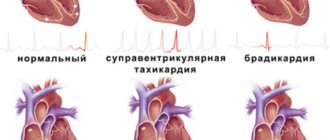- home
- News
- Why do you feel dizzy when you quit smoking?
After quitting smoking, you may often feel dizzy. This is one of the withdrawal symptoms. It begins just a few hours after the last cigarette smoked and lasts up to three weeks. This is a normal reaction associated with a deficiency of nicotine, which was previously involved in regulating the activity of the central nervous and autonomic nervous system and suddenly stopped supplying.
Why does dizziness occur?
In people who smoke, nicotine constricts arterial vessels, keeping them toned. Its effect is due to its similarity to acetylcholine, an organic compound involved in the regulation of brain function. It is necessary to transmit nerve impulses to narrow the vascular walls. When a person smokes, the production of acetylcholine decreases because it is replaced by nicotine molecules (nicotine and acetylcholine molecules have similar chemical structures). After quitting smoking, a period begins when acetylcholine is not yet produced in sufficient quantities, but is no longer replaced by nicotine. The tone of the vascular walls becomes reduced, the pressure decreases, and the person feels this as weakness and dizziness. In hypotensive patients, the head may feel especially dizzy, vomiting, nausea, and deterioration in concentration are possible.
When smoking, the blood contains less oxygen - it is partially replaced by carbon dioxide. In smokers, this provokes oxygen starvation, to which the body gradually adapts. When a person stops smoking, the reverse process begins. Blood oxygen saturation increases sharply, and this can make you feel worse, causing dizziness and headaches. Such symptoms disappear within a few days as the body adapts.
Another possible reason is a change in the functioning of the central nervous system. Nicotine has a short-term stimulating effect on the brain. If a person abstains from his habitual smoking of tobacco, nicotine ceases to have its stimulating effect. This provokes irritability, aggression, and apathy. Sleep disturbances and fatigue often occur. Dizziness appears against the background of a general deterioration in health.
What happens in the body?
The vascular spasm described above affects not only the brain, which can cause dizziness from smoking, but also other internal organs, which has an extremely negative effect on their condition. This leads to oxygen starvation of the body and deterioration in the quality of internal organs, which is fraught with serious problems. In parallel, an increase in blood pressure can become one of the triggers for an attack of more serious diseases (in older people who are active smokers, we can talk about, for example, the development of a stroke).
With the regular intake of tobacco smoke into the body, nicotine is integrated into the natural biochemical processes occurring in cells, which causes the development of signs of physiological dependence. When you quit smoking, a kind of withdrawal occurs, since the body cannot carry out its usual metabolism without the presence of nicotine. As a result, the smoker finds himself in a vicious circle where he needs to smoke to feel normal, and this further aggravates the general condition of the body.
How quickly will withdrawal go away?
It is believed that in smokers it passes quickly and in a mild form. The malaise is mild, and the head is dizzy or hurts only from time to time, not constantly. Dizziness will appear less frequently and last less each day. Symptoms of physical withdrawal completely disappear within 2-3 weeks, usually much faster, in just a few days. The exact period depends on the state of health, smoking experience, the number of cigarettes smoked per day, lifestyle, and how treatment for tobacco addiction is organized.
Lethal dose of nicotine for humans
The lethal dose for humans is 0.5 – 1 milligram of nicotine per kilogram of weight.
When smoking one cigarette, a person receives approximately 1 milligram of this substance.
When nicotine intoxication occurs, the prognosis depends on the following factors:
- dose taken,
- age of the victim,
- general health, presence of concomitant diseases,
- duration of intoxication (before medical assistance is provided).
How to reduce dizziness?
This symptom cannot be ignored. It can be quite dangerous, and it is important to monitor your well-being while withdrawal symptoms pass. Medical doctors recommend:
- if you start to feel dizzy, it is better to sit down for a while, lie down, and rest until your health returns to normal;
- with low blood pressure, to increase it, you need to drink black tea or coffee with sugar;
- It is better to avoid heavy physical activity, severe stress, and anxiety. At the same time, playing sports and habitual exercise are useful and help improve both mood and well-being;
- it is important to maintain a sleep schedule, get enough sleep, get enough exercise, and find activities that will help distract you from thoughts about smoking;
- nutrition must be correct. Vegetables, fruits, fish, seafood are healthy. You can eat more chocolate. Meals should be regular (hunger can cause dizziness);
- contrast shower in the morning. Restores the mechanisms of blood pressure regulation;
- walk more in the fresh air. Fast walking and light jogging are useful;
- It is undesirable to provoke dizziness: climb to great heights, watch 3D videos, ride attractions.
If you feel very dizzy and often, have problems with concentration, headaches, you should temporarily stop driving or work with complex or potentially dangerous equipment. If such symptoms persist for more than two to three weeks, you should additionally consult with a narcologist. To make withdrawal easier and faster, it is better to seek the help of a doctor in treating nicotine addiction. Narcologists use maintenance therapy, which helps to eliminate the symptoms of withdrawal syndrome as much as possible.
How to deal with this?
It is possible to break out of the described vicious circle, however, the shorter the smoking experience, the easier it is to do so, so do not put off such a decision for a long time. We are talking here not only about banal smoking cessation, but also about helping the entire body.
For example, after quitting smoking, dizziness is often observed. This frightens many, but dizziness here is quite natural, since the normal supply of oxygen to the brain is restored, for which this becomes a kind of shock after a long fast.
The brain and, accordingly, the entire body need to try to help at this moment, which will make it easier to survive the period of adaptation of all systems and organs to life without nicotine. To do this, follow the following rules:
- walk outdoors more often;
- try to avoid stress;
- do not make sudden movements;
- get plenty of rest;
- be sure to get enough sleep;
- play sports;
What not to do
If you or someone you know has quit smoking and is feeling sick, then you shouldn’t aggravate the situation and:
- start smoking again - with repeated nicotine poisoning, the condition can worsen sharply, and if the nausea was caused by damage to the gastrointestinal tract, this can lead to the development of serious complications, for example, perforation of an ulcer;
- take medications for nausea and vomiting - such drugs are indicated only in emergency cases, nausea and vomiting are evidence of cleansing the body of toxins, and taking medications can greatly slow down the situation;
- continue to eat food in random order - fullness of the stomach and irritation of its mucous membrane with “harmful foods” will provoke the development of diseases of the gastrointestinal tract.
DO YOU WANT TO QUIT SMOKING?
Then you need a strategy for quitting cigarettes. With its help it will be much easier to quit.
Allergy to nicotine
Cigarette smoke contains many toxic compounds that can cause serious allergies. Intolerance to any toxin can develop in smokers and against the background of a decrease in general immunity.
When an allergy to tobacco appears, it is not enough for a person to completely quit this bad habit, but also try to isolate himself from inhaling cigarette smoke when being near other smokers.
Who is at risk
If a person has a question about why he feels dizzy after smoking, he needs to analyze the individual characteristics of the human body. The fact is that some of them may cause a person’s predisposition to such a pathology to be stronger.
People most often experience dizziness when smoking:
drinking large amounts of drinks that have a tonic effect;- having excess weight;
- frequently consuming alcoholic beverages;
- hypotension;
- non-compliance with the rest and work regime;
- eating an unbalanced diet;
- taking potent medications.
Quitting smoking is unlikely to be easy, since without receiving the next dose of nicotine, the human body will be in a state of stress. This addiction is not much different from others, so it is worth contacting a qualified specialist for help.
E-Sigs
Nowadays, a large number of people prefer electronic cigarettes instead of regular cigarettes.
But few people know that such an invention has not been tested in clinical settings, and it does not have approval from the World Health Organization. And due to the small number of subjects who used this invention, it is impossible to say exactly how it can affect the human body. An electronic cigarette is a battery-powered electrical device. In operation, the liquid, which contains nicotine, is heated. As a result, vapors enter the smoker's lungs instead of smoke. Also, the liquid used to fill this cigarette includes flavorings and a liquid part (most often glycerin). How these additional substances may affect the body has not been tested by anyone. Only after several decades will it be clear what the impact of such cigarettes is on the body.
Penetrating into the lungs, nicotine moves into the blood. With the flow of blood circulation it reaches the brain, affects the nerves and causes a state of depression.
The first sign of poisoning of the body is headache, dizziness, blood pressure, nausea, and weakness. To prevent these consequences, avoid stress, exercise, get good sleep, and spend more time outside.
The effect of smoking cigarettes on the human body
If smoke regularly passes into a person’s blood, processes begin that negatively affect the body:
- Cough.
- After smoking I feel nauseous and unsteady.
- After smoking you feel dizzy.
- Circles appeared under the eyes.
- The skin has become less elastic.
- Taste buds become dull.
- Metabolism worsens.
- It begins to darken in the eyes and taste bitter in the mouth.
- Shortness of breath appears.
The above symptoms indicate that it is time to quit smoking!
Ways to alleviate the condition
It is necessary to clearly understand that by quitting smoking, you will significantly improve your own health, namely: shortness of breath and coughing attacks will be a thing of the past; thirst, aggressiveness and slowness of speech and movements will disappear; your appetite will become much better; your sleep will be more sound and restful. It is recommended to follow the following rules:
- drink green tea every morning;
breathe fresh air as often as possible;- systematically perform breathing exercises, as well as engage in physical exercise;
- a systematic contrast shower and good rest are necessary;
- You should allocate at least 8 hours for sleep;
- avoid stress;
- If possible, avoid sudden movements.
A person may feel dizzy even after quitting a bad habit. Most former smokers are afraid of this condition, but there is nothing to worry about. The fact is that the supply of oxygen to the brain increases, and this condition seems unusual to the body of a former smoker. As the oxygen supply to the brain normalizes, the attacks of dizziness will occur less and less often, and eventually they will stop.








